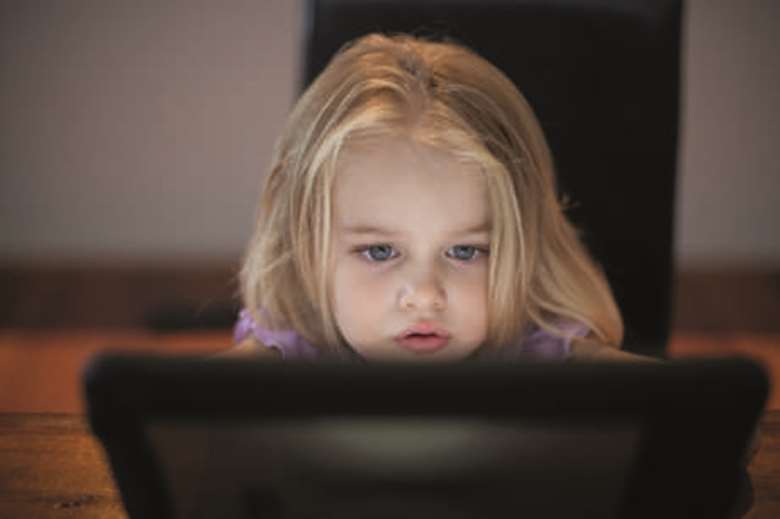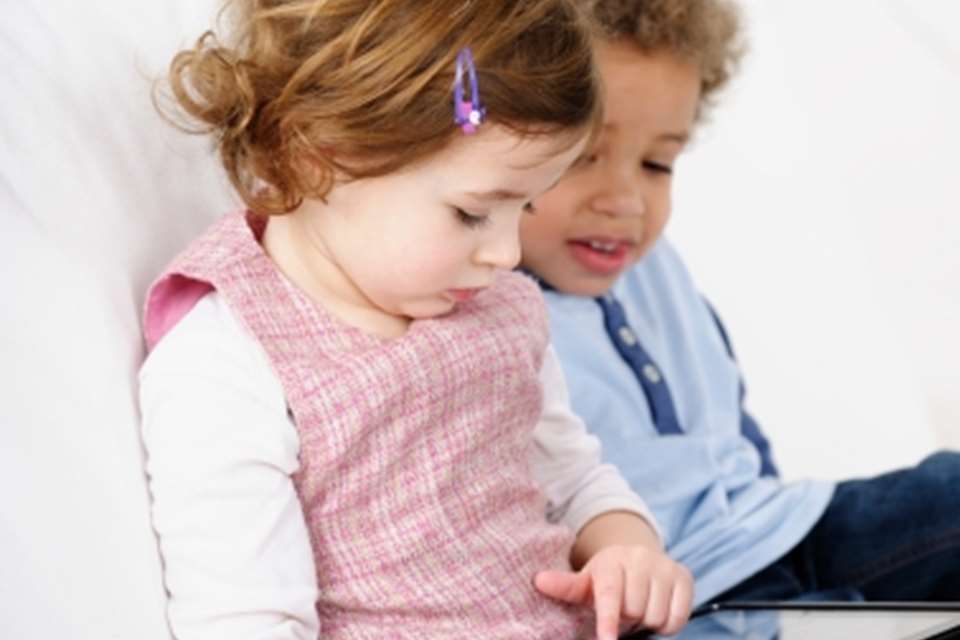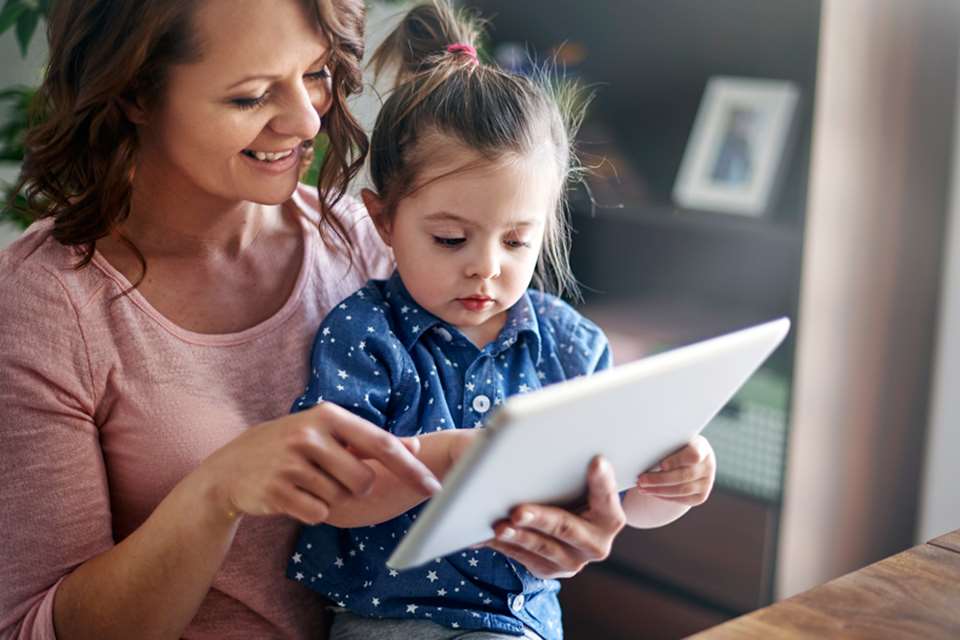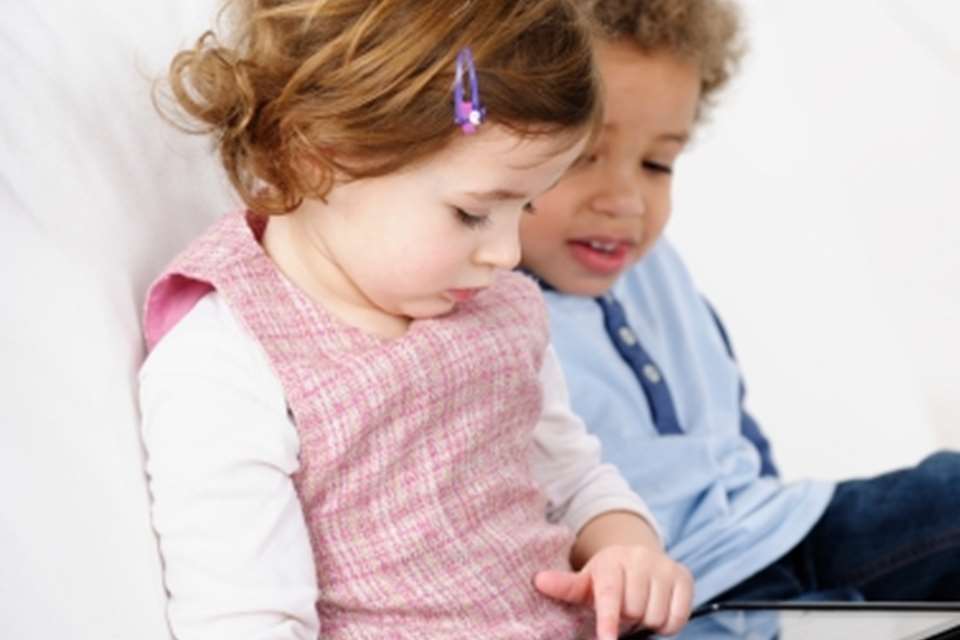Experts divided over screen time limits
Monday, February 4, 2019
The absence of official guidance on screen time for children in the UK has sparked debate about whether limits are needed.

- Making screen time recommendations is ‘problematic’, says RCPCH
- Various research provides conflicting views on effects of screen time
The absence of official guidance on screen time for children in the UK has sparked debate about whether limits are needed.
It follows the publication of the Royal College of Paediatrics and Child Health’s (RCPCH) Screen Time Guidance last month, which claimed it is impossible to recommend age-appropriate screen time limits.
The guidance, which claims to be the first of its kind in the UK, recommends letting ‘parents be parents’ and allowing families to make decisions on screen use based on what is important to them and their child.
The impact of screen time is currently a hot topic with a plethora of studies looking into its effect on children. Just last week, a Canadian study linked high levels of screen time to delayed development in children.
The research, carried out by the University of Waterloo, the University of Calgary and Alberta Hospital Research Institute, found that children who spend more time on screens at the age of two did worse in tests of development at age three than children who had spent little time on devices.
According to the latest figures on children’s media consumption, five- to 16-year-olds are increasingly using connected devices. The 2019 Childwise Monitor report, published last week, found that five- to seven-year-olds spend an hour-and-a-half a day online. Three in four have their own computer – for three in five this is a tablet device (see box).
Against Limits
Dr Max Davie of the RCPCH told Nursery World that making screen time recommendations is ‘problematic’.
He explained, ‘When putting limits in place you would have to make exceptions for older children, use of screens at school and for homework. Where do you draw the line?
‘In the UK, the science is not there – there is no evidence that limits are effective.’
Dr Davie added, ‘Where there is a problem, for instance if a child has speech delay, professionals can ask families questions about their use of screen time, as featured in our guidance.’
Professor Andrew Pryzbylski from the Oxford Internet Institute has said there is little or no evidence that digital screen use, on its own, is bad for young children’s psychological well-being.
A study carried out by the professor, in partnership with Cardiff University, which tested screen limits of one to two hours per day, found that limiting children’s digital device use was not necessarily beneficial for their well-being. The findings also suggested that moderate screen use above the limits might be linked to slightly higher levels of children’s well-being.
Using screens in the right way
Early years consultant, author and trainer Penny Tassoni believes tablets should be used as tools for learning and that parents and settings have a duty to show children how to use them in this way.
However, she doesn’t think there is any benefit to babies of being sat in front of them.
Ms Tassoni explained, ‘A lot of background noise can mean young children don’t do self-talk, while research has shown that blue light impacts children’s sleep.
‘Parents need to consider if there are any active benefits to a child using a tablet. If a child is engaging in it, what are they not doing, what skills are they not using? When a child is watching a tablet, they are not moving or making eye-to-eye contact.
‘Tablets are very easy to use, but very rewarding so become a choice activity. They are inherently very satisfying.
‘Would 30 minutes on a tablet affect a child’s development, no – but it is unlikely to just be that amount of time. The use of tablets can become a battleground for parents early on.
‘The other big issue is appropriateness of what children are watching/using.’
She added, ‘Our job as educators should be to show how tablets can be used as tools to further children’s learning.’
For Limits
 Writer and consultant Sue Palmer (right) believes Government guidelines are needed.
Writer and consultant Sue Palmer (right) believes Government guidelines are needed.
‘Screen use for children under the age of seven is particularly concerning. Screen time is very addictive and is replacing activity and interactivity.
‘It’s shocking and shameful that in the UK, we don’t have guidance on screen time as other countries do. I think this is partly down to fear of the nanny state, but also because of various political reasons,’ she said.
Health education lecturer Aric Sigman also believes there should be official guidance. In a report for the Association of Play Industries, published last month, he called upon the Government to issue a recommendation of two hours’ discretionary screen time per day for children.
Other countries have gone further, however.
Around the world
In New Zealand, The Ministry of Health recommends discouraging screen time for under-twos and limiting it to less than one hour per day for children aged two to five. In its guidance for professionals it says ‘less is best’.
The Ministry of Health points to evidence showing that prolonged screen use can be detrimental to a child’s physical health, communication skills and the quality and quantity of sleep.
Australia recommends sitting and watching television and the use of electronic media (DVDs, computers and electronic games) be limited to less than one hour per day for children aged two to five.
In France, the government advises parents to keep children younger than three away from screens. It says that young children shouldn’t even be in the same room as a screen when it is on.
In Taiwan, parents are now legally obligated to monitor their children’s screen time. The Taiwanese government can fine parents if their child’s use of electronic devices exceeds a ‘reasonable’ time.
While the American Academy of Pediatrics (AAP) recommends families develop their own media plan, it says children younger than 18 months should avoid use of screen media other than video-chatting. For children aged two to five, the AAP recommends screen use be limited to one hour per day of ‘high-quality’ programmes.
Childwise report
According to the 2019 Childwise Monitor report, which looks at the media consumption, purchasing and social habits and behaviour of 2,000 children aged five to 16, the average time children spend online has increased to three hours per day.
A breakdown of the figures for five- to seven-year-olds shows that two in five children access YouTube every day, spending around an hour-and-a half on the channel, accessing ‘funny’ content, music and gaming. Children of this age range prefer to watch cartoons on TV. Peppa Pig continues to be their favourite programme.
But children still enjoy playing traditional card and board games, and nine in ten five- to seven-year-olds read for pleasure.









